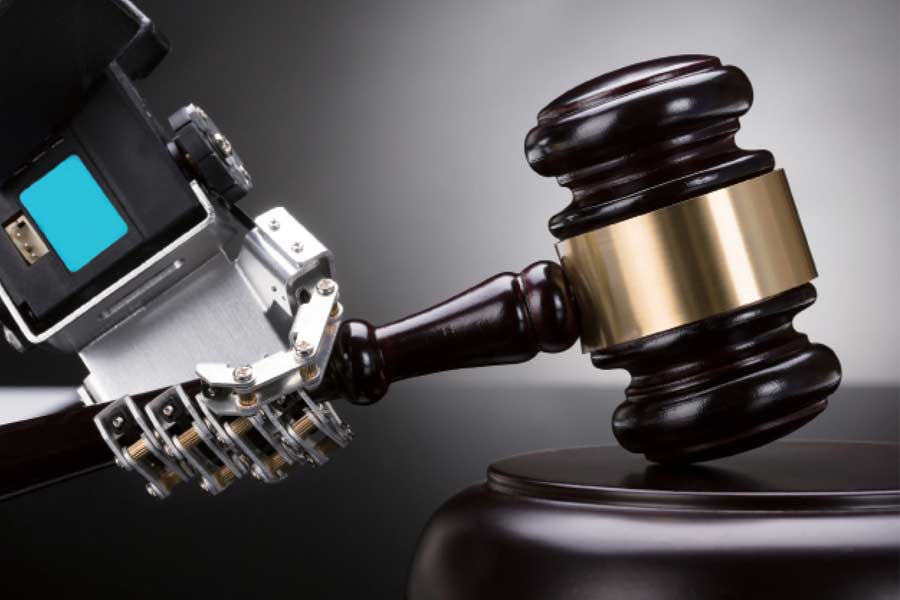The US District Court for the Eastern District of Virginia ruled on Wednesday that an artificial intelligence (AI) machine cannot be an inventor within the meaning of patent law. The lawsuit was a motion for summary judgment on two patent applications filed by Stephen Thaler for an AI machine called DABUS. DABUS has been listed as the inventor of the Neural Flame, a beacon that flashes in new and inventive ways to grab attention, and Fractal Container, a beverage container based on fractal geometry.
Thaler’s patent applications were rejected by the US Patent and Trademarks Office (USPTO) and he challenged this refusal as “arbitrary, capricious, an abuse of direction and not in accordance with the law”.
With this lawsuit, he requested a declaration that a patent application should not be refused solely because no natural person was identified as the inventor and that a patent application for an invention by AI should list AI as the inventor if the inventor criteria were met. The court rejected Thaler’s arguments and noted that the definitions of “inventor” provided by Congress in the Patent Act apply to a “person” whose common dictionary and legal meaning is an individual or a human being. The use of personal pronouns such as “he or himself” and the verb “believes” in adjacent terms that modify the word “individual” makes it clear that the Congress was referring to a natural person. The court acknowledged that Thaler had made several policy considerations, such as promoting innovation and its scope, as well as preserving the value of human ingenuity. However, it held that the ultimate decision would lie with Congress.
In July the South African Patent Office published a patent in which DABUS is listed as the inventor. Two days later, an Australian federal judge also ruled that a nonhuman could be called the inventor of a patent. However, the US federal courts have repeatedly ruled that inventors must be natural persons. As artificial intelligence technology continues to evolve, US lawmakers and the judiciary will increasingly grapple with the question of expanding the scope of patent law.




